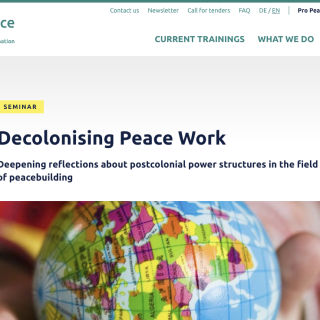“A service for peace”, NATO soldiers remember the 1999 humanitarian intervention in Kosovo.
Little of what in 1999 was part of NATO’s decisions, orders and air operations over the former Yugoslavia has stopped in time to become part of the military museums of the countries whose forces were part of the intervention.
What was once shown in video conferences or presented by NATO commanders at 13 bases across Europe, remains a powerful recollection in the memory of the soldiers who were lucky enough to be part of an unprecedented intervention in the history of the alliance, five decades after its establishment.
A year of unproductive diplomacy to avoid the fourth war in a row in a decade in the territories of the former Yugoslavia had paved the way for the use of air forces.
The one who led this operation, which he prefers to call “modern warfare”, the retired American general, Wesley Clark, reflecting on the duty he performed 25 years ago, again shows pride in what NATO managed to do.
“I am simply proud of the action NATO undertook then to end the campaign of ethnic cleansing against Albanians in Kosovo,” he says.
“The operation to stop the humanitarian disaster that was unfolding in Kosovo was the last option after diplomatic paths had been exhausted”, he adds.
When Clark first issued his orders, humanitarian intervention was not something that had examples and history. However, in his view, humanitarian intervention in the principle of international law “was an inevitable thing with low human cost”.
During the 78 days of the operation that Clark led, aircraft of the then 19-member alliance carried out 10,484 attacks against military and police targets and other infrastructure in Kosovo, Serbia and Montenegro.
In military museums like the one run by retired British general Adrian Freer, photographs of the NATO intervention give a brief account of what will be debated for a long time.
Freer was the commander of the 5th Airborne Brigade and was tasked with negotiating with the Russians for Prishtina Airport. Brigadier Freer would be among the first in the military to show disagreements among commanders and “division and ambiguity.”
In the last week of March, Russia twice failed in its efforts to include the discussion in the UN Security Council on the agenda of NATO’s intervention in the former Yugoslavia, warning that the Western troika will not be able to reject this debate endlessly.
Paul Gibson, another British soldier who had orders to deal with the Russian contingent that had arrived from Bosnia at Prishtina Airport, remembers that not only was the weather hot that day, but also the whole atmosphere before the deployment of the infantry.
Colonel Gibson, also retired, at the time was the commander of the 1st Battalion of the Parachute Regiment that had received orders to enter Kosovo. He says that on June 12, a hundred years of history changed. “It was a tense, unforgettable moment,” he recalls, referring to the order to head to the airport to confront the Russian contingent.
It was the day when NATO was not deploying so easily as Russian troops, allies of Serbia, had arrived at the airport. By avoiding a confrontation, NATO avoided what British General Mike Jackson had warned could trigger a World War Three.
When Gibson landed in Prishtina at dusk on June 12, people were out on the streets greeting and giving flowers to NATO troops. “It was a feeling that we had done something good for those people. A service for peace”.
But the happy crowds on the streets of Kosovo passed “without much attention” to him, as did the members of the guerillas, the Kosovo Liberation Army.
Freer and Gibson also recall a time when Serbian forces were retreating and there was much looting of property and attacks on Serb and Roma civilians.
Their superior, the secretary general of the North Atlantic Treaty Organization, the Spanish diplomat, Javier Solana, that evening would call the operation of the allied forces a “very courageous contribution to the cause of peace and security for all the people of Kosovo”.
But in Prishtina, General Freer again had problems with the chain of command. “Soldiers in Prishtina were patrolling in a vacuum that lasted for several days. There was constant change of orders and confusion,” he says. “This had a somewhat detrimental effect on morale.”
Serbeze Haxhiaj is an investigative journalist and news editor based in Pristina, Kosovo, who focuses on corruption, human rights, security issues, religious extremism, terrorism and war crimes. She is currently an editor at Radio Television of Kosovo and a journalist at the Balkan Investigative Reporting Network (BIRN).




